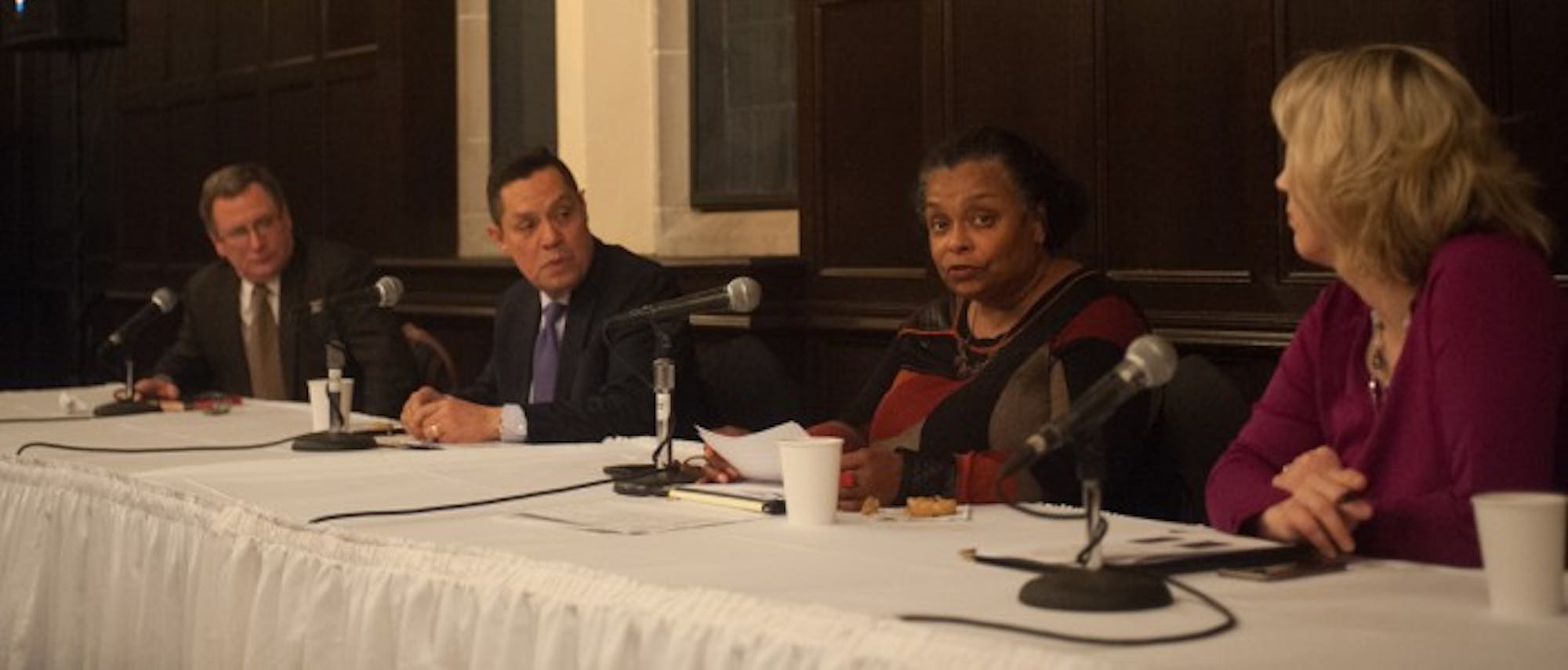
Paying tribute to the Martin Luther King Jr. speech of the same title, the Walk the Walk week panel event, “Where Do We Go From Here?” examined the 2016 election results and the future of American politics Wednesday night.
The event was led by panelists Timothy Matovina, co-director of the Institute for Latino Studies and professor of theology; Christina Wolbrecht, director of the Rooney Center for the Study of American Democracy and associate professor of political science; Dianne Pinderhughes, chair of the Department of Africana Studies; and Luis Fraga, co-director of the Institute for Latino Studies.
Following the question of racial tensions prompted by President Trump’s election, the event was “inspired by [voting results] but was also appropriate to document in the Walk the Walk week,” Pinderhughes said.
Pinderhughes opened the discussion by reading an excerpt from King’s “Where Do We Go From Here?” speech. Pinderhughes said “where we go from here” must involve a notion of understanding power, love and the ways in which these two concepts correspond.
“The concepts of love and power have been contrasted as polar opposites, so that love is identified as a resignation of power, and power as a denial of love,” Pinderhughes said. “Power is best as love, implementing the demands of justice.”
Matovina, the next panelist, said there are three points that are key to understanding and promoting inclusion in the future.
First, referencing King, Matovina said we “must massively assert our dignity and worth.”
This concept, he said, is needed to see a person’s infinite value in politics. Like Pinderhughes, Matovina noted the importance of power. He said power is subjective based on how it is used and that in the future, the country needs more protests with purpose, direction and plan.
“Dr. Fraga and I have had a number of students come to us since the election saying, ‘We’re undocumented, should we go home, should we be with our parents, should we be here?’” Matovina said. “You should be here. You should be learning, because knowledge is power. Deep social analysis points social action in effective directions.”
Wolbrecht summarized the unusual results of the presidential election and posed questions she thought Americans should ask next. She described the ways in which the 2016 nomination process brought about surprising results, but how the presidential election was not unusual considering partisan tendencies.
“We have weak party institutions and strong partisanship,” said Wolbrecht. “We have party institutions that have failed to coordinate and choose a candidate to run for political office, but we have amongst the general population, an incredibly strong sense of partisanship that has become strongly tied to other forms of our political identity.”
Wolbrecht remarked that in the early days of Trump’s presidency, Americans have seen immediate conservative policy implementation, such as the reinstating of the global gag rule and advancement of the Keystone pipeline. Trump’s inauguration and early days also prompted debate over facts and censorship.
Wolbrecht closed by saying that the next question Americans should ask is, “how strong are our institutions and how strong is our democracy?”













